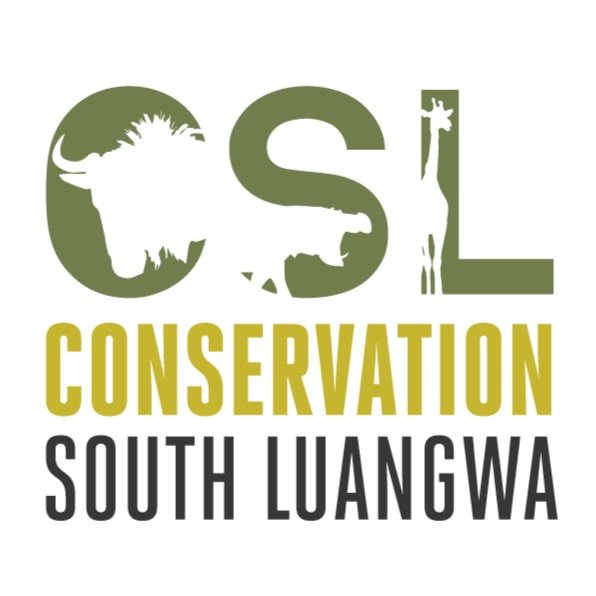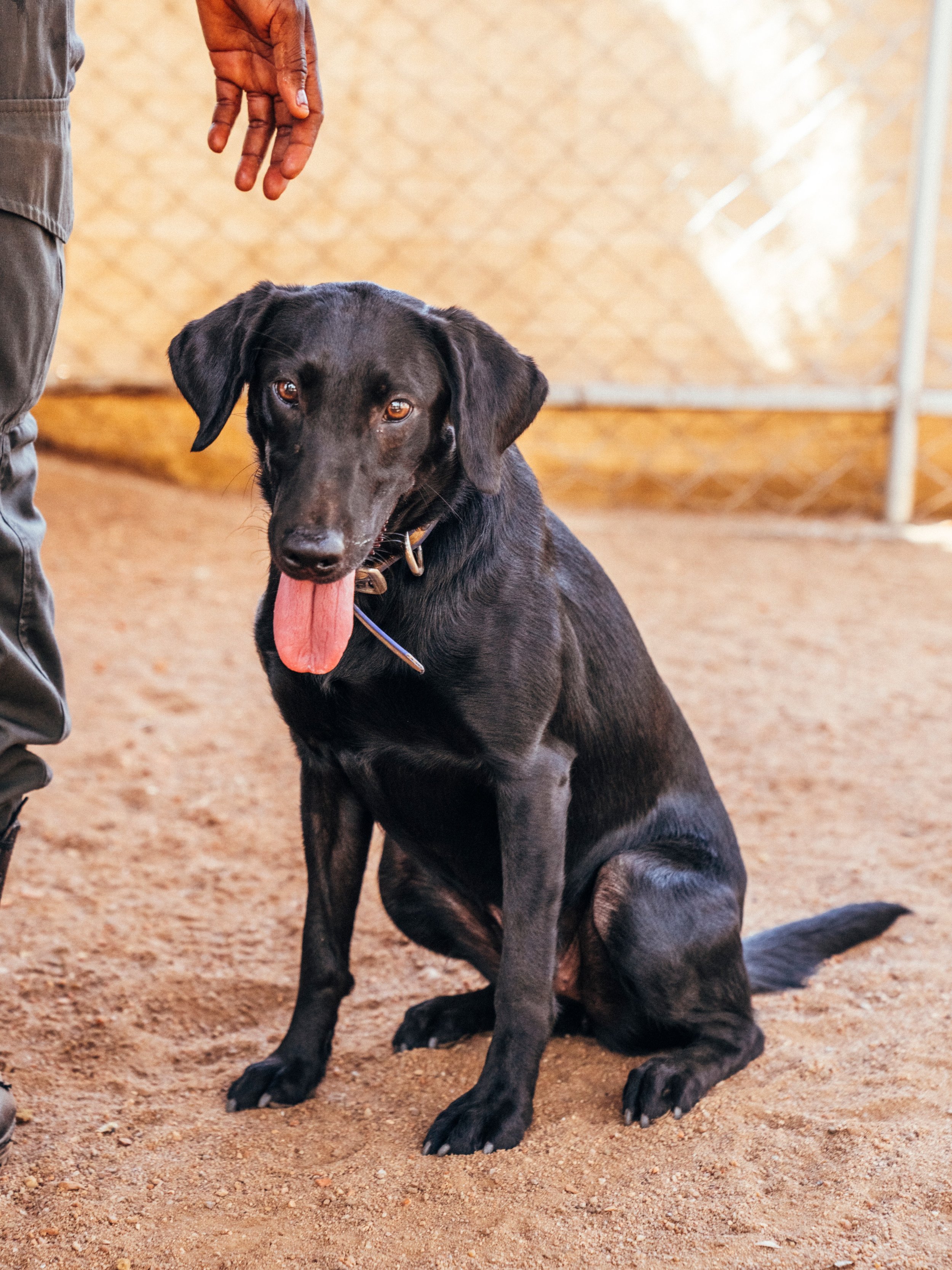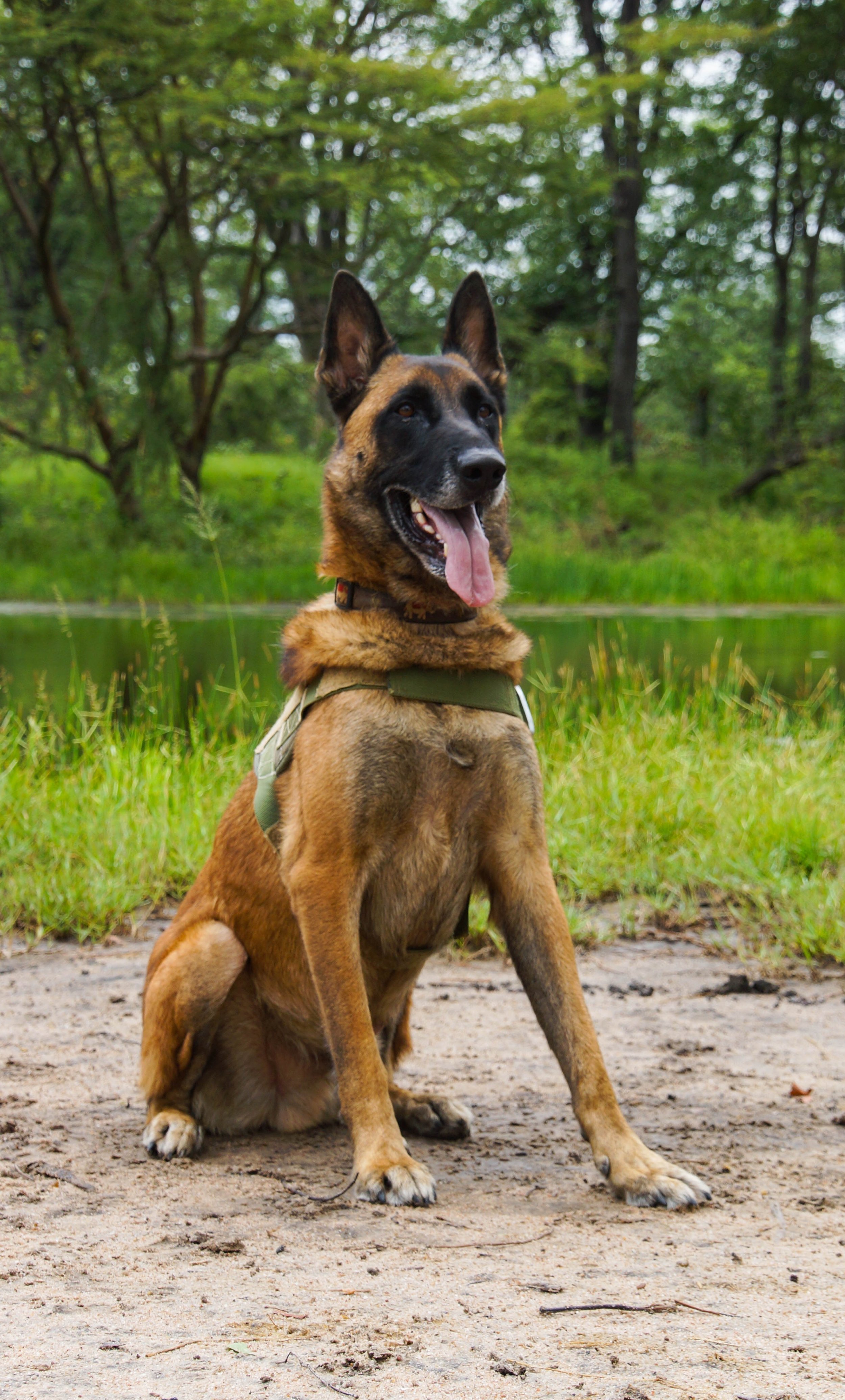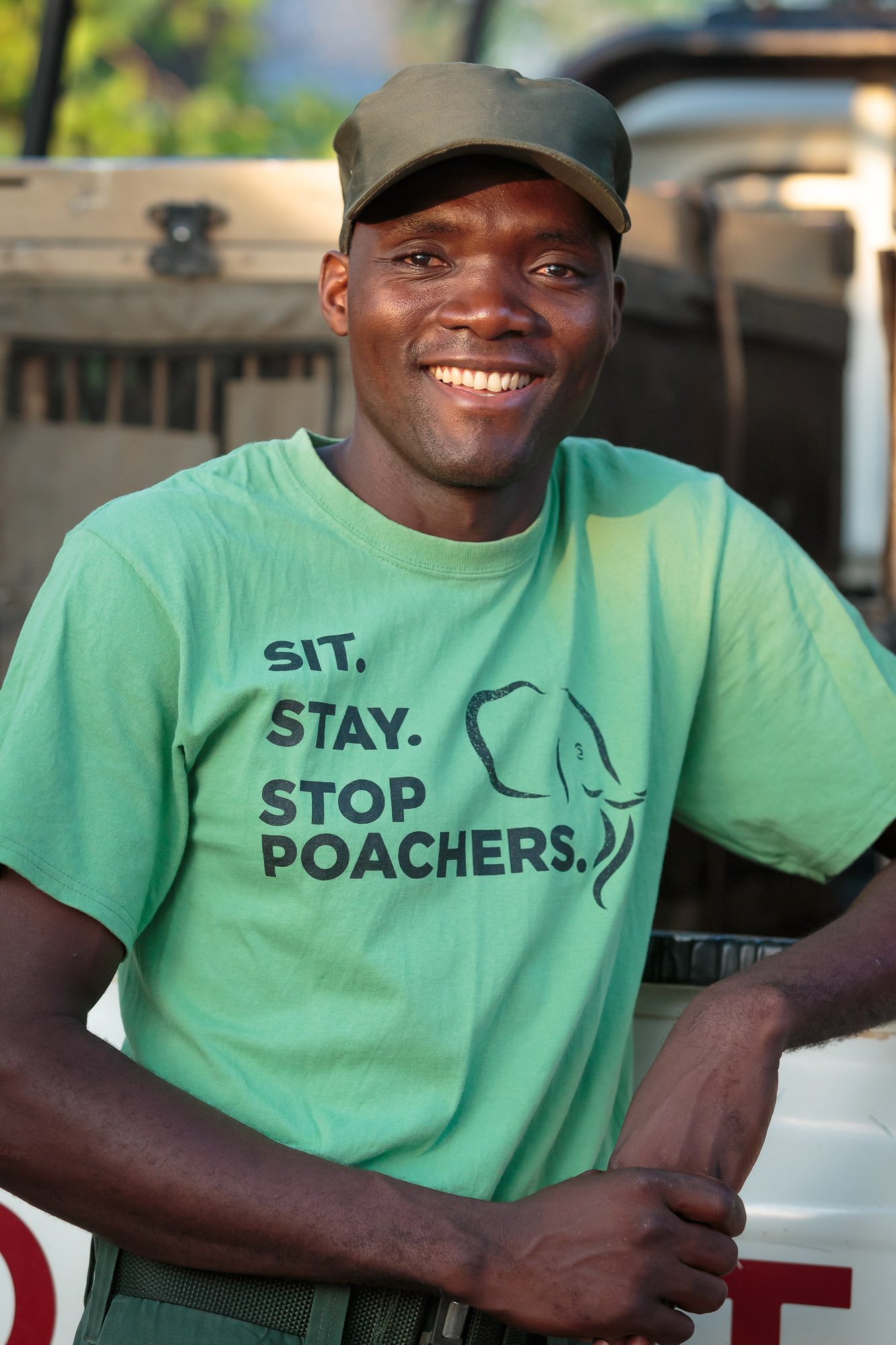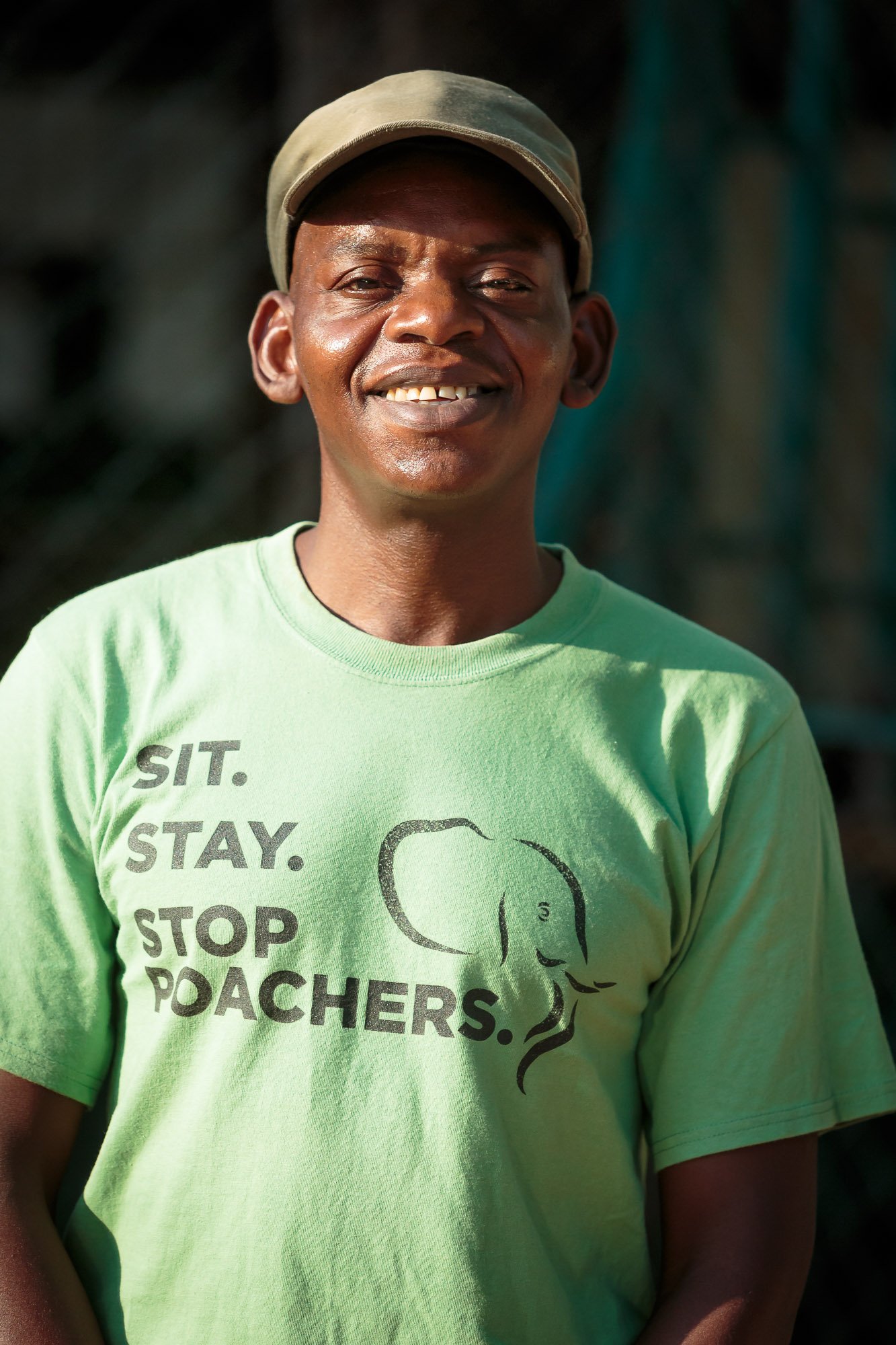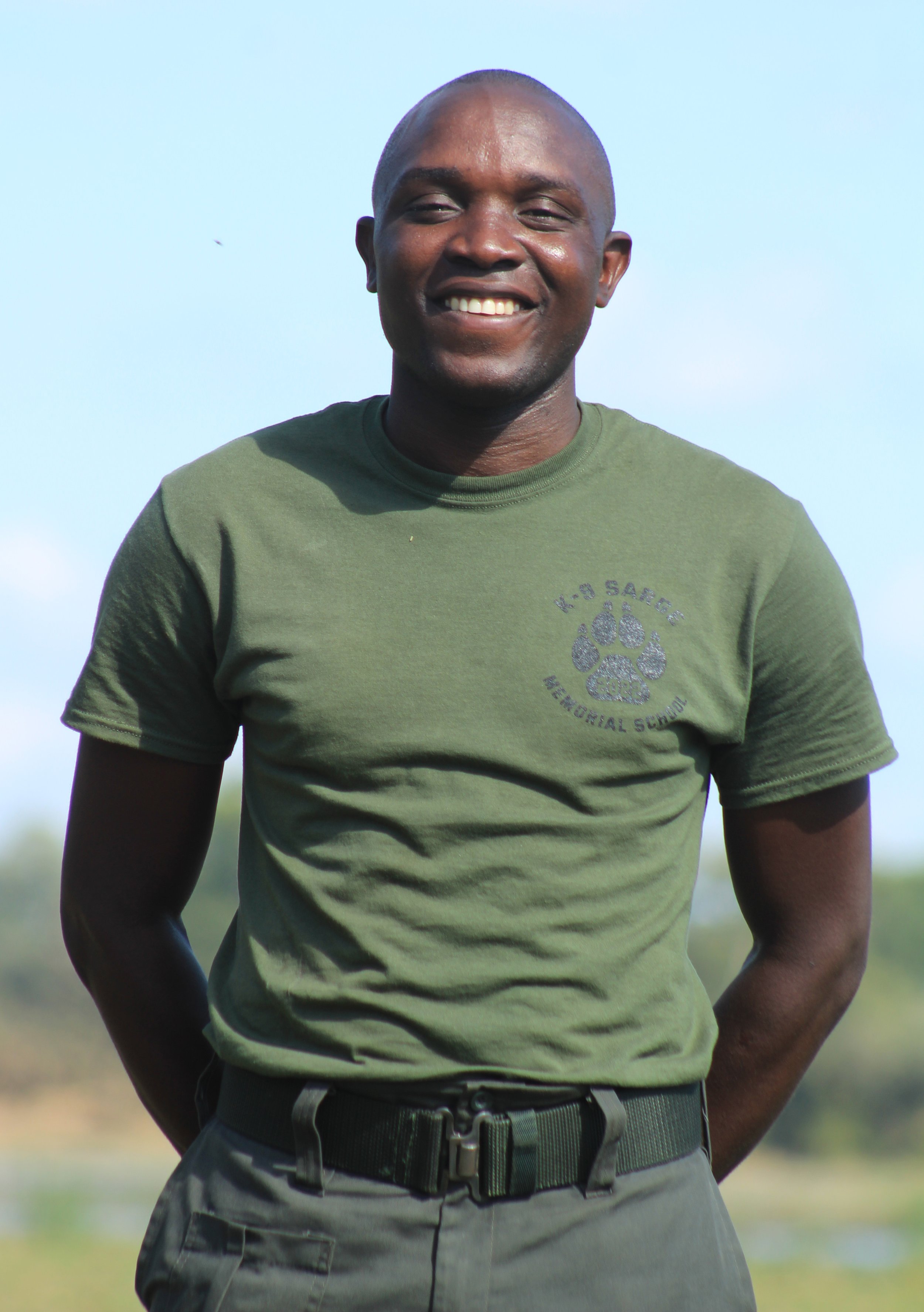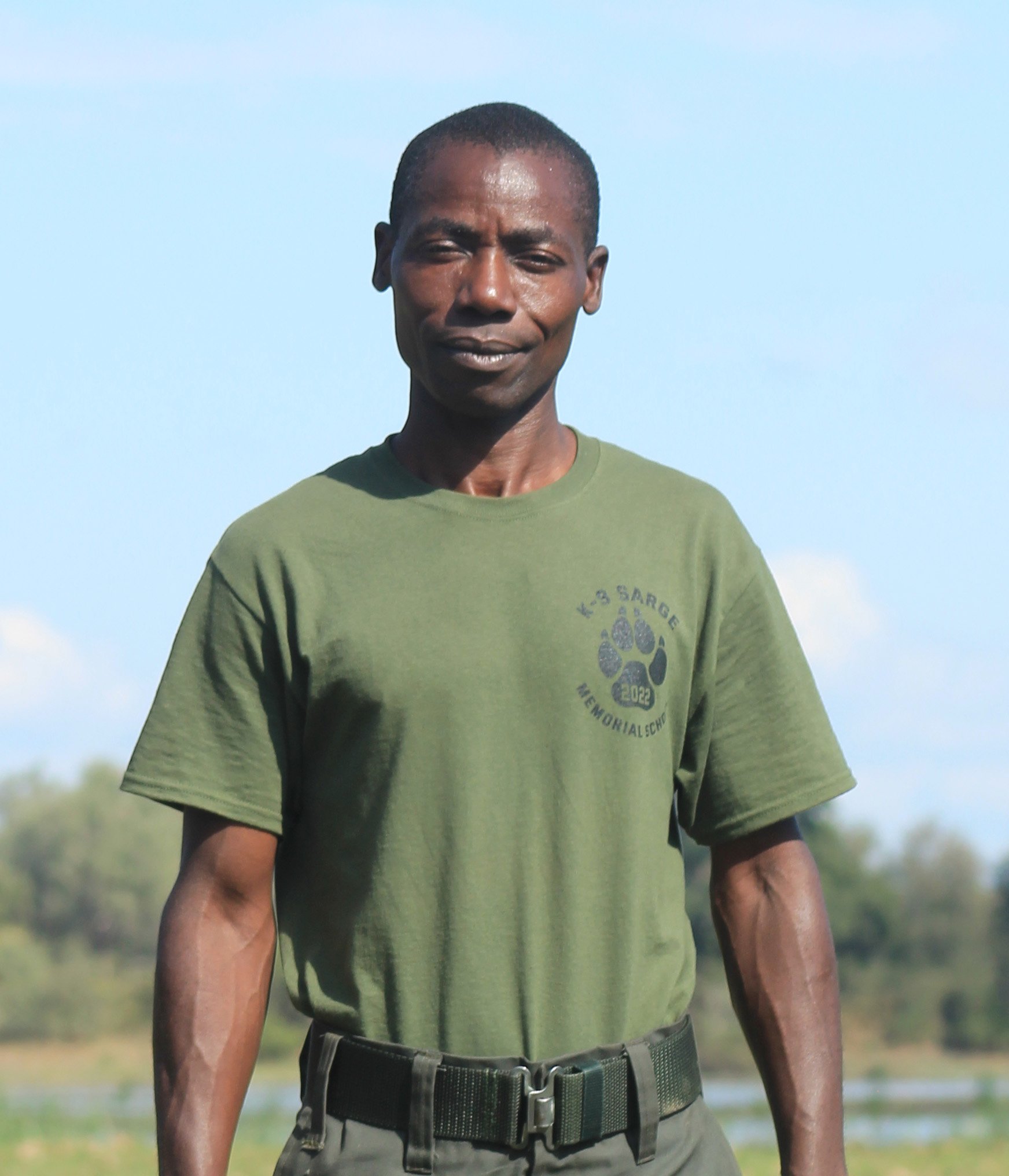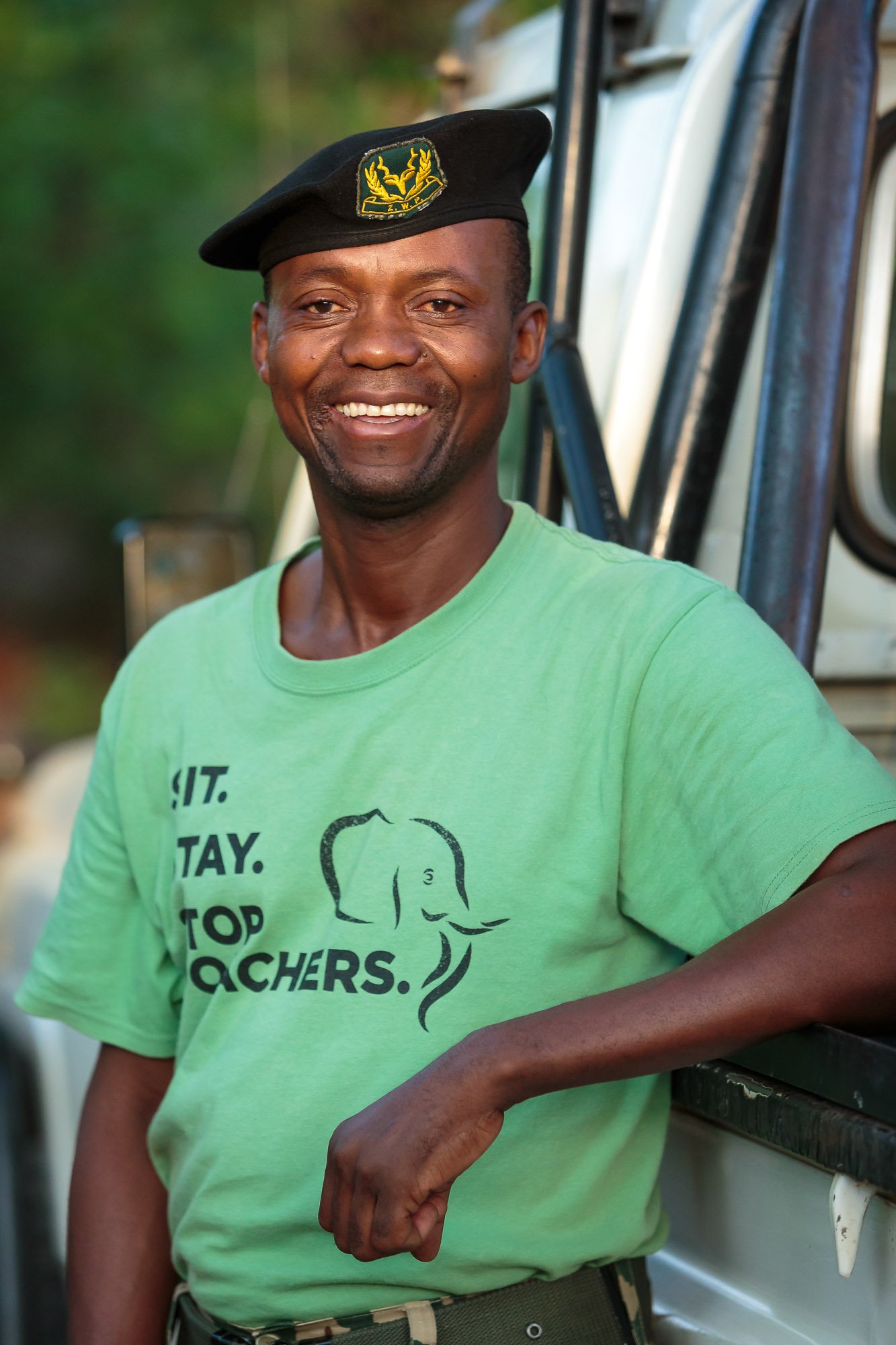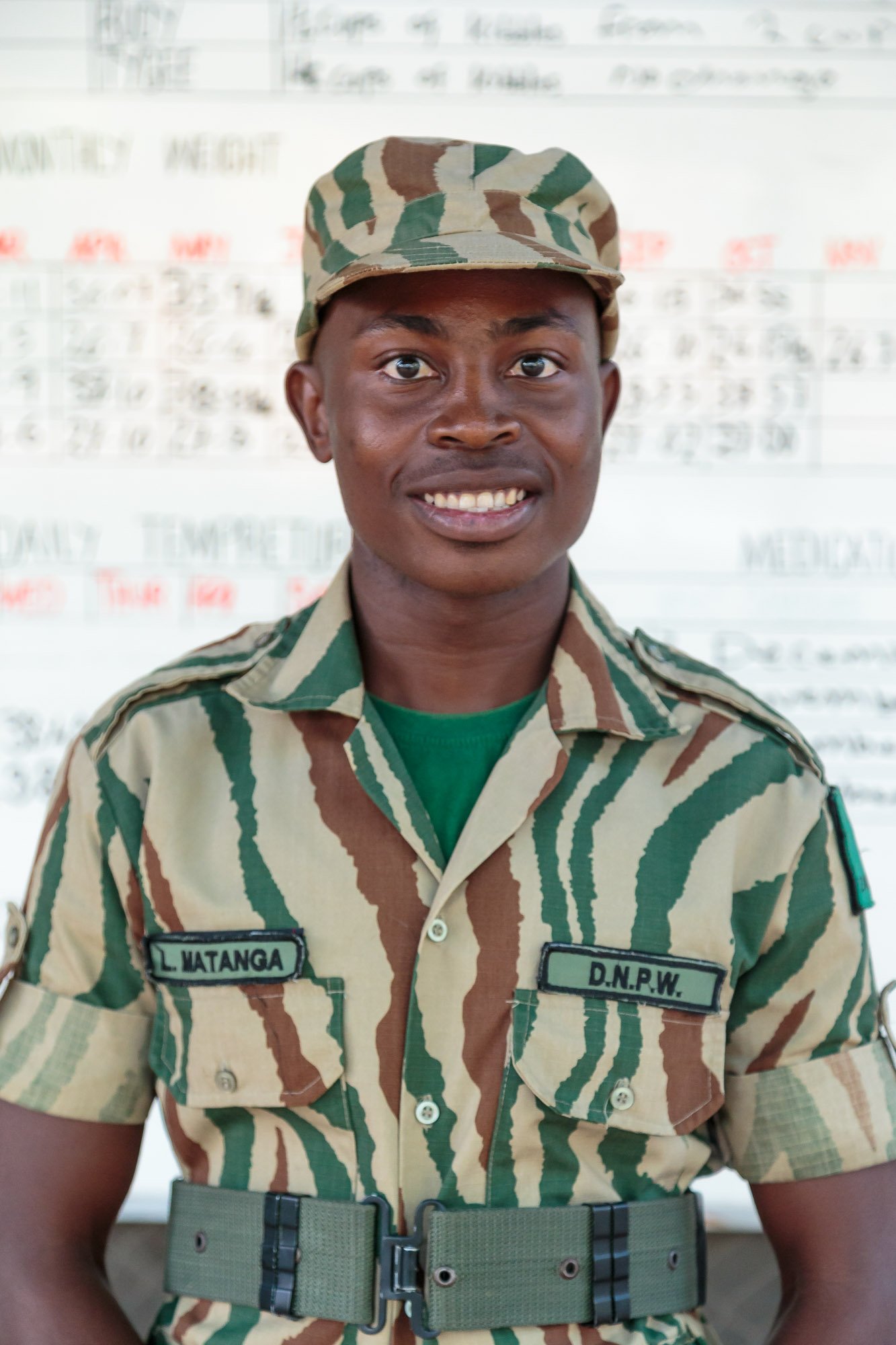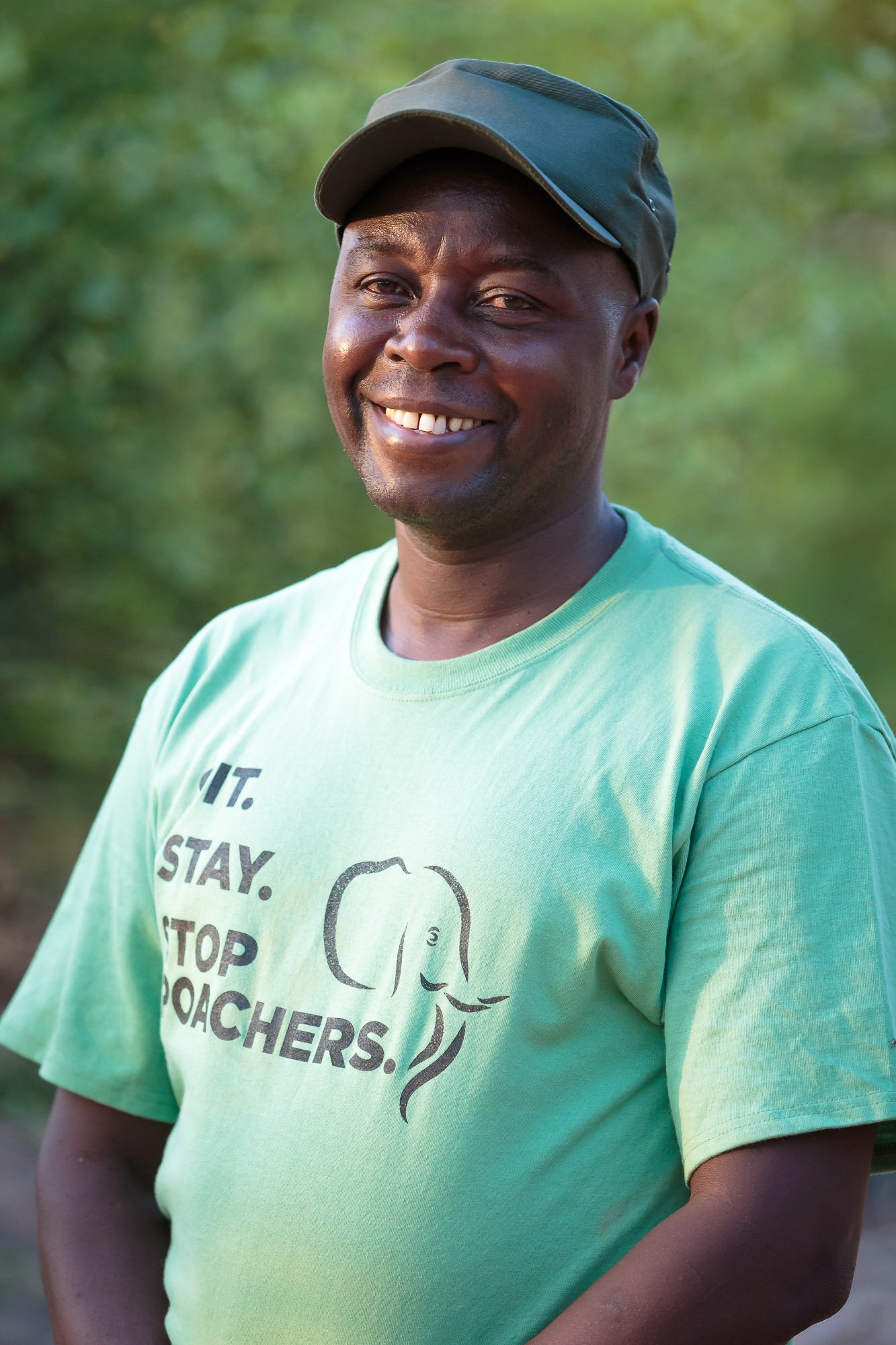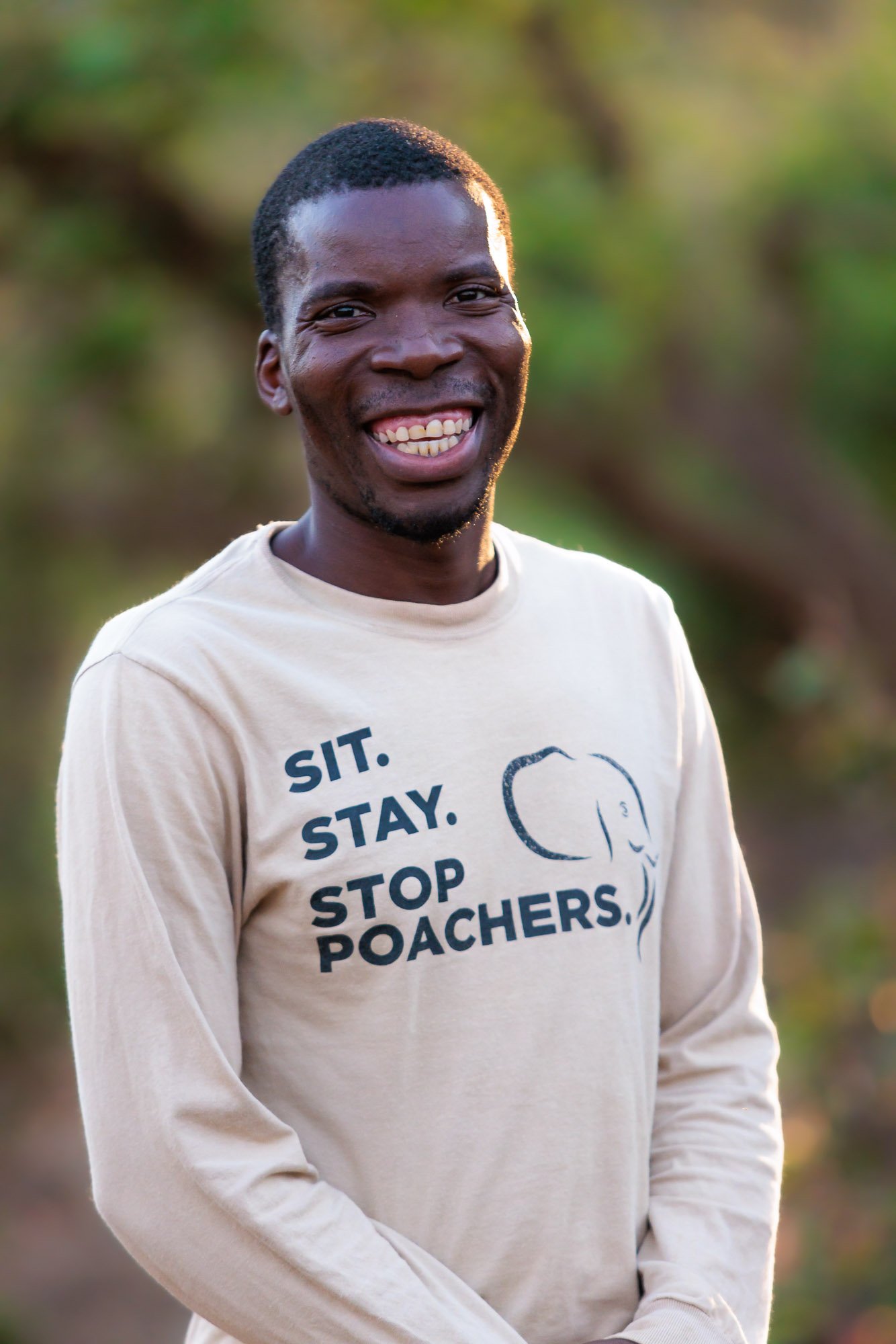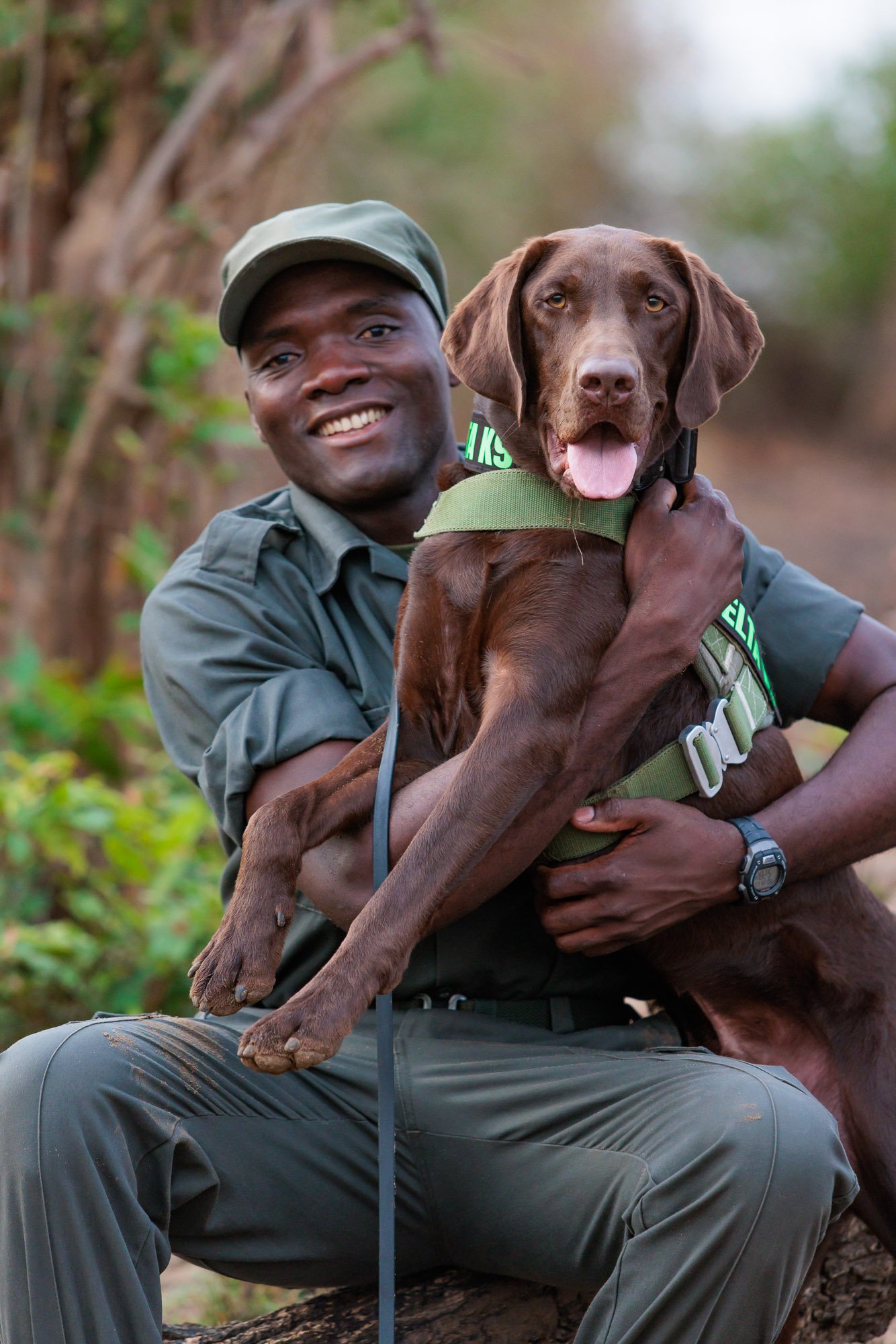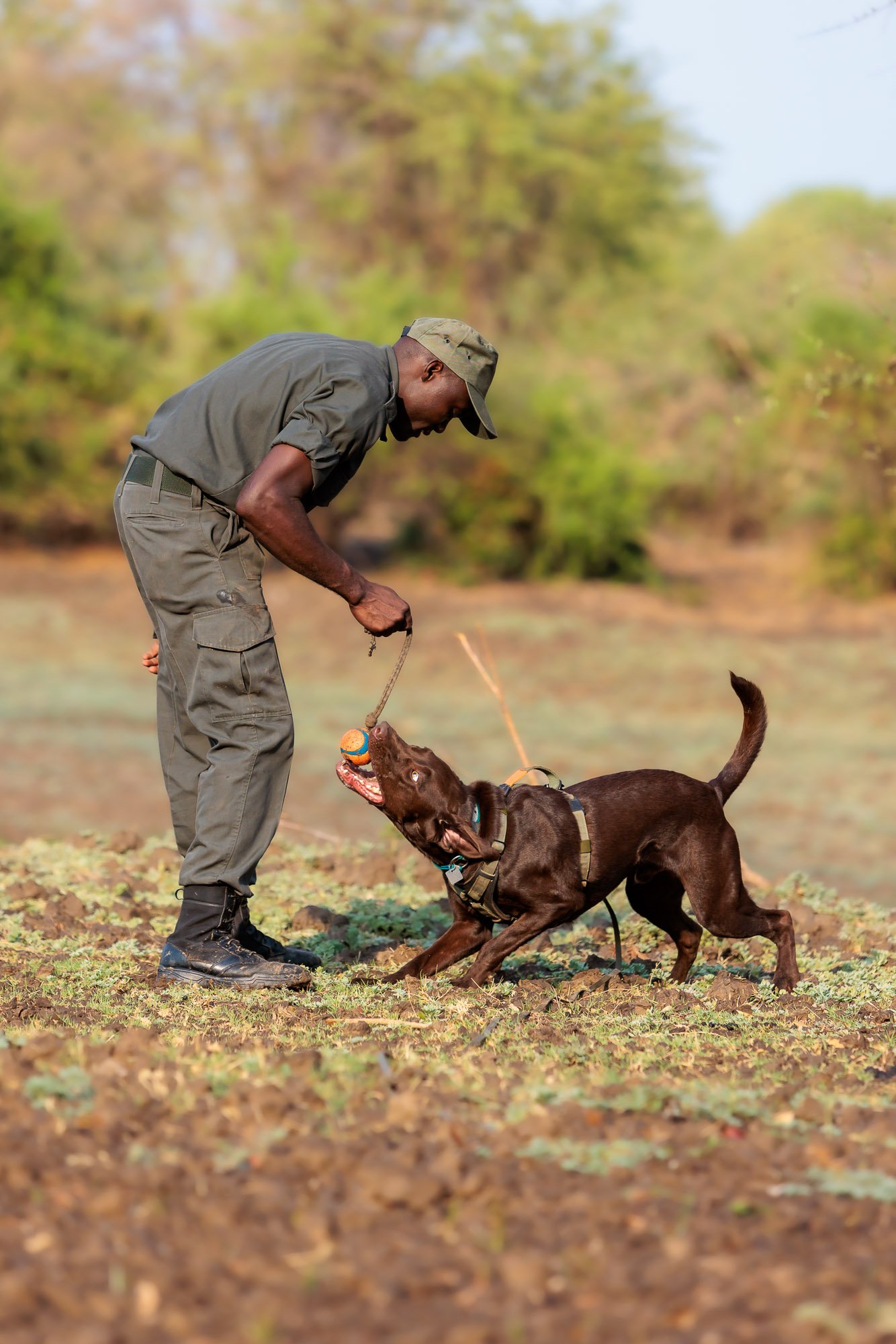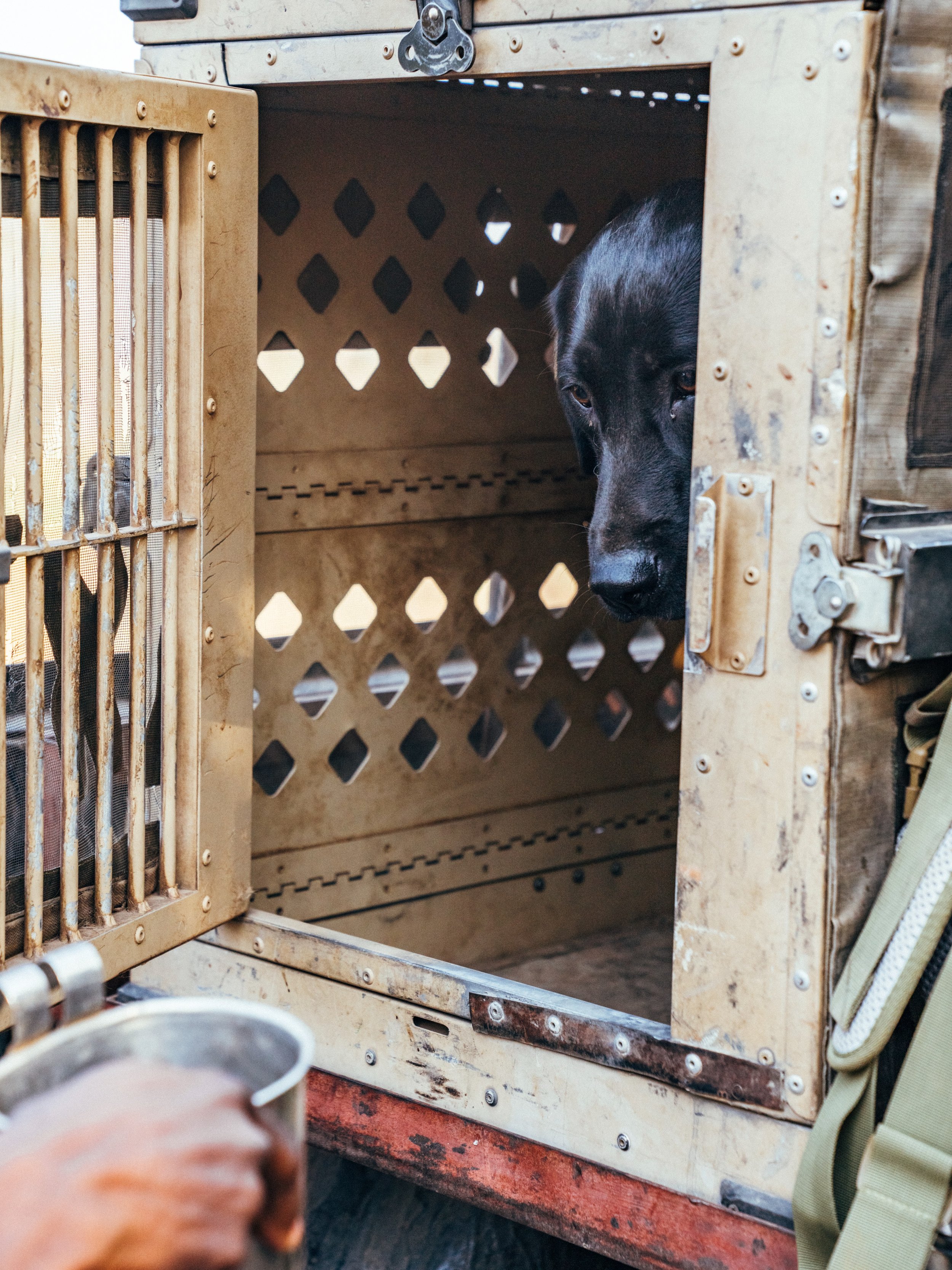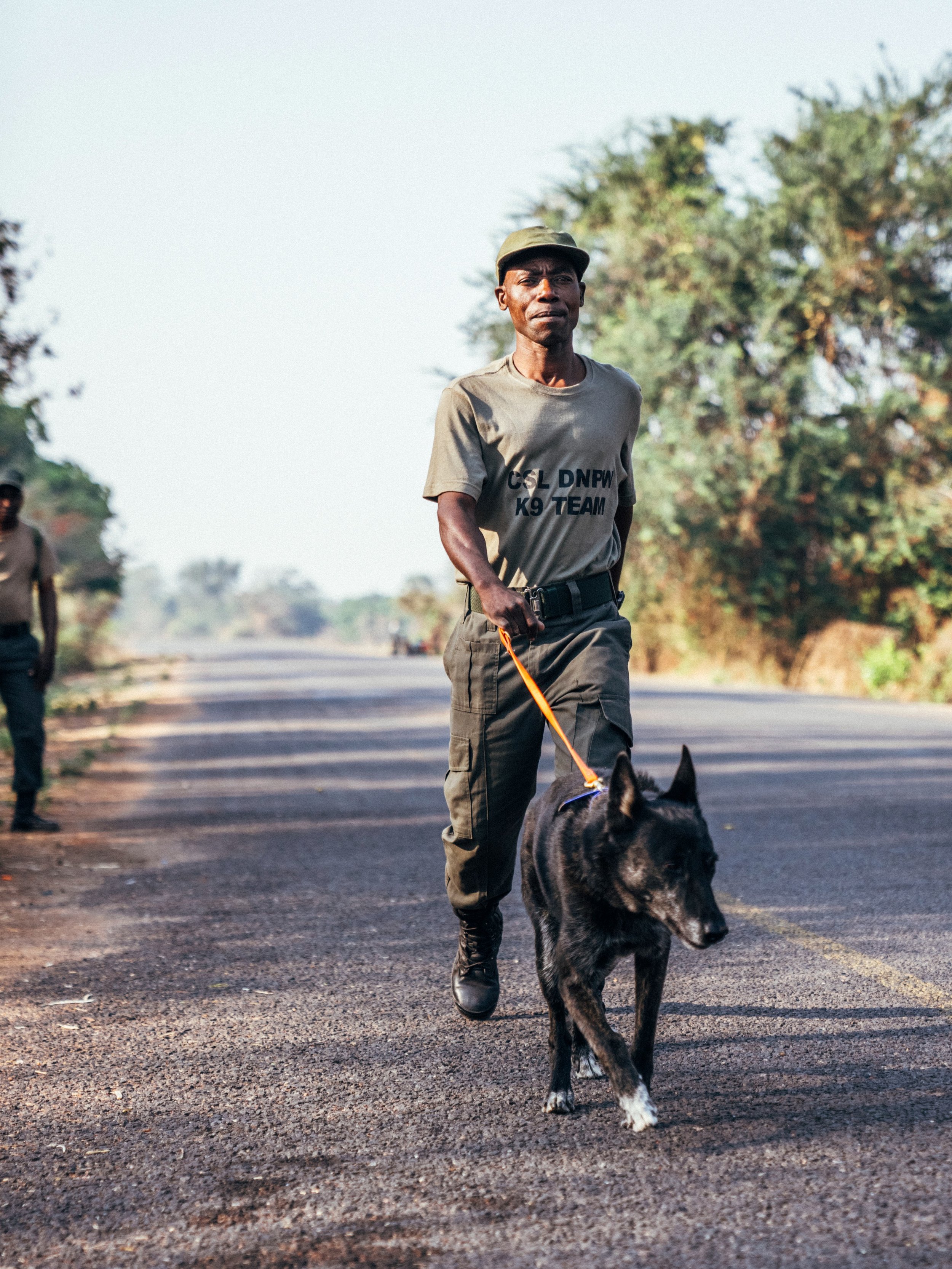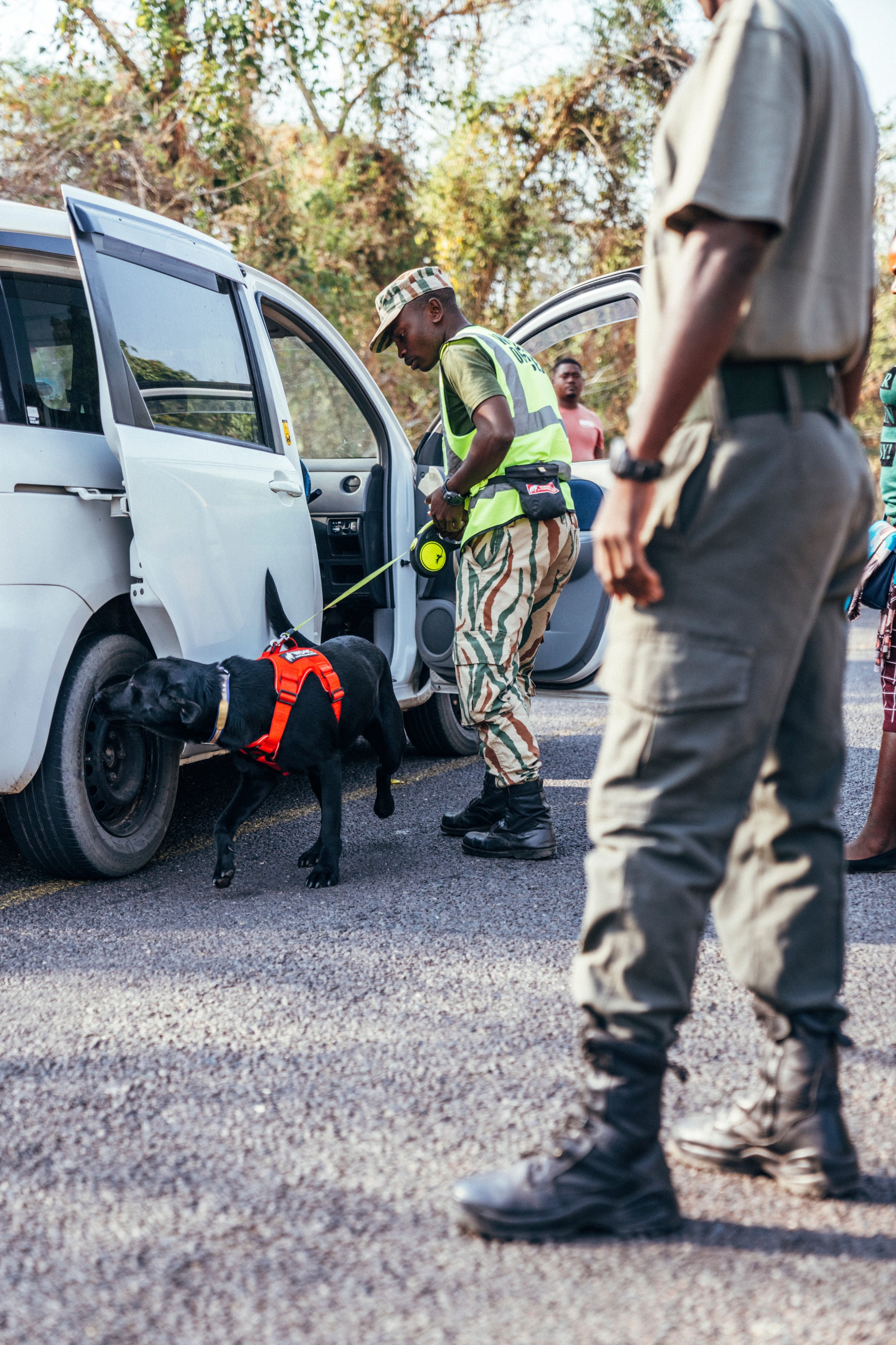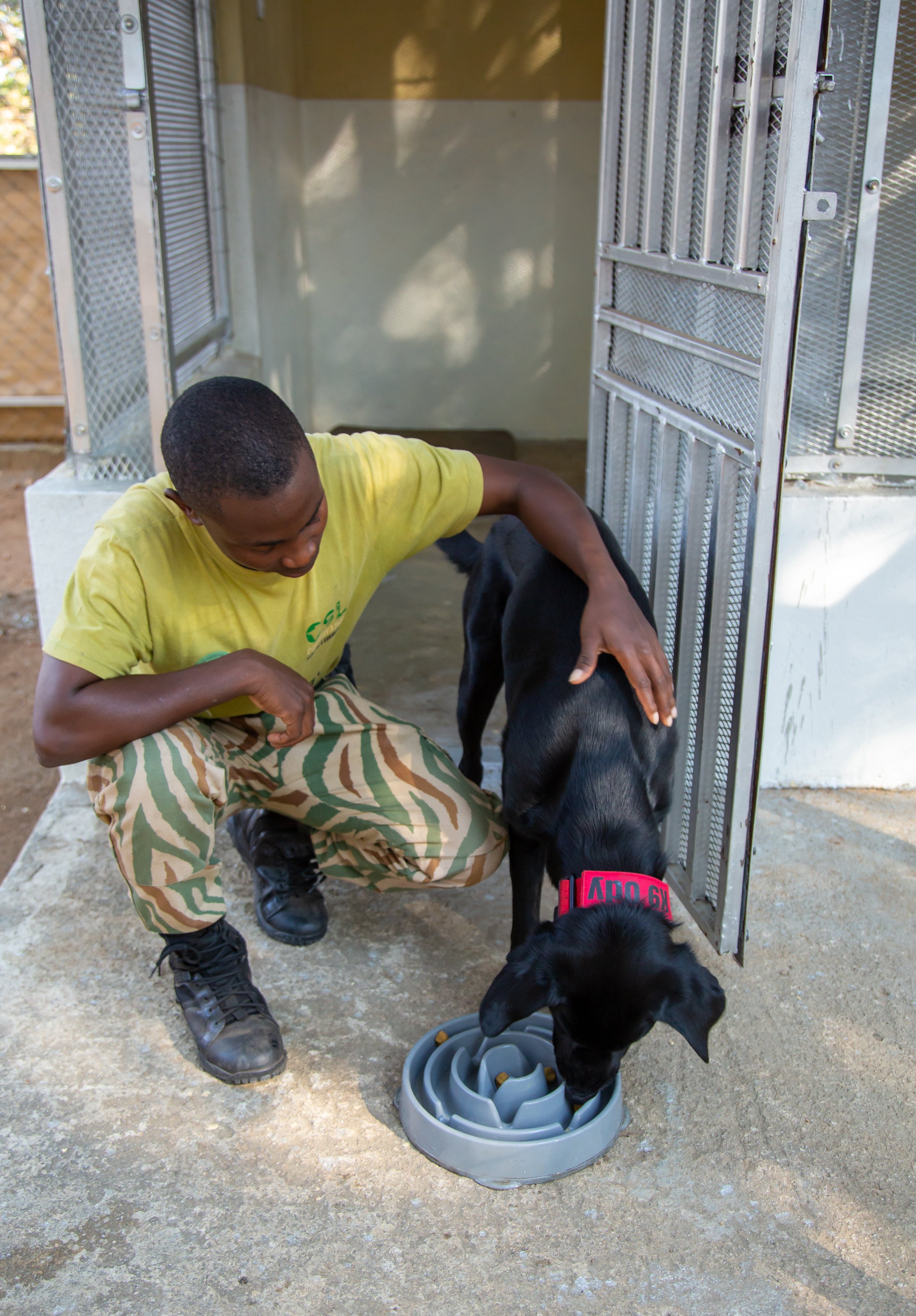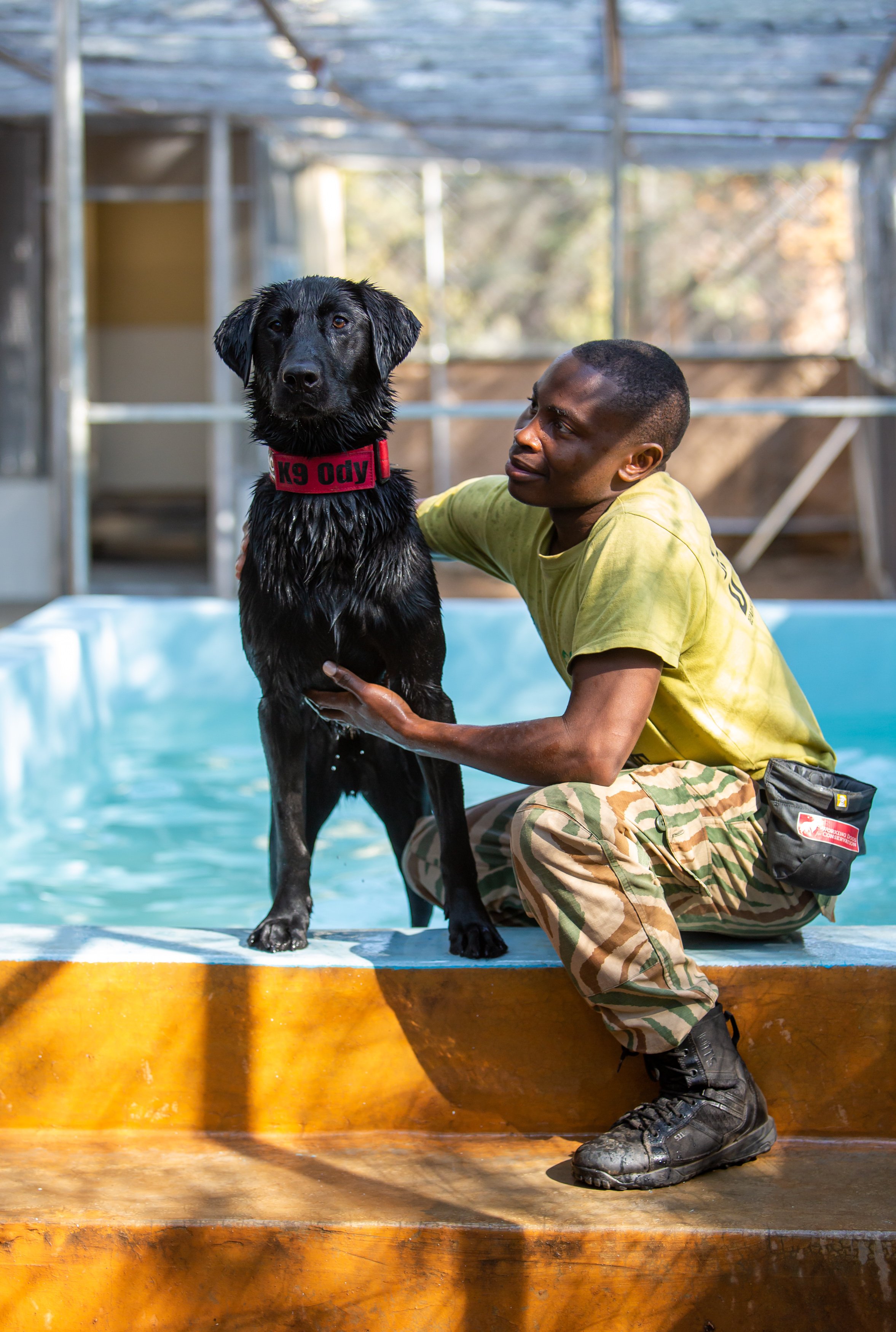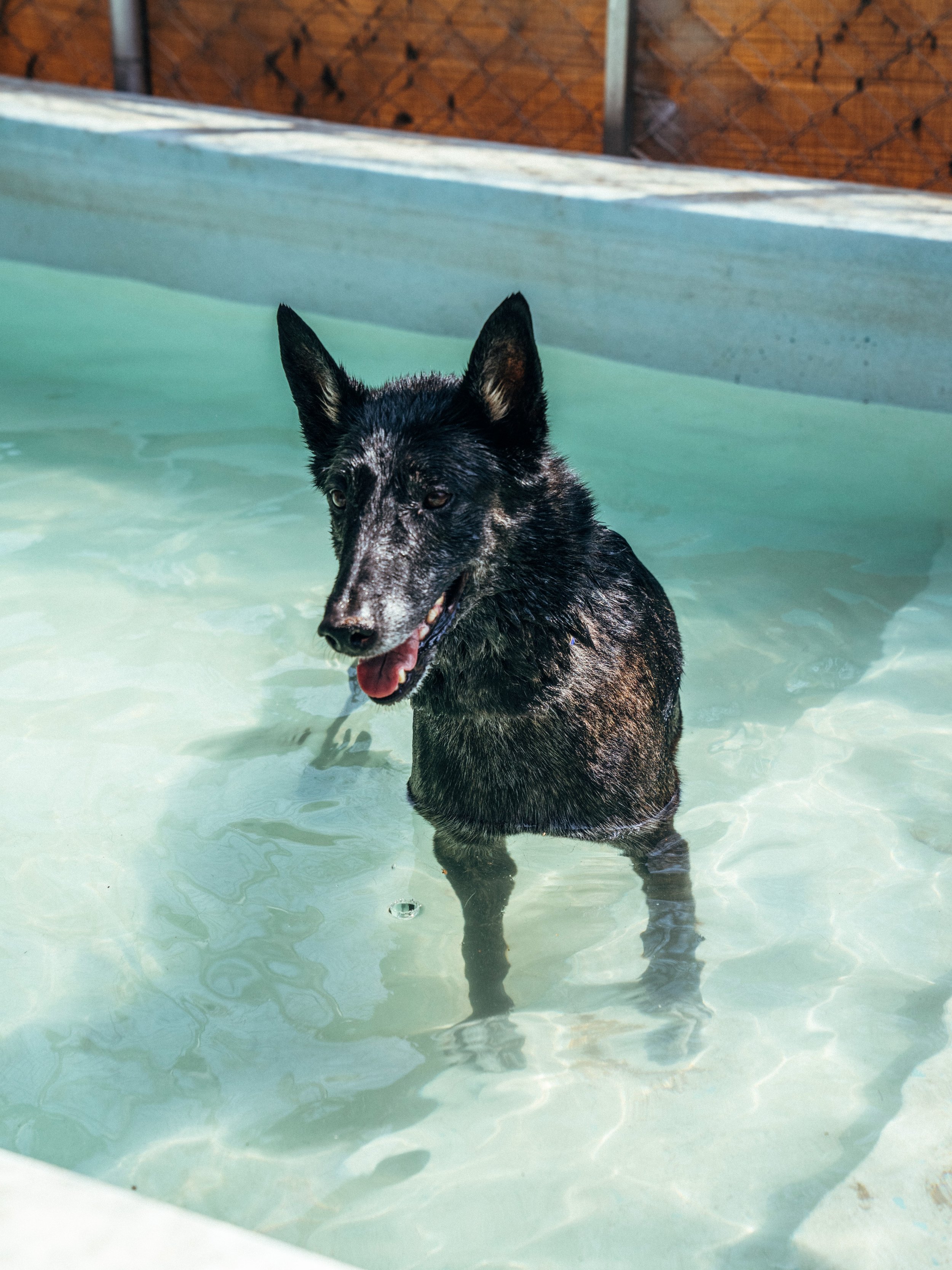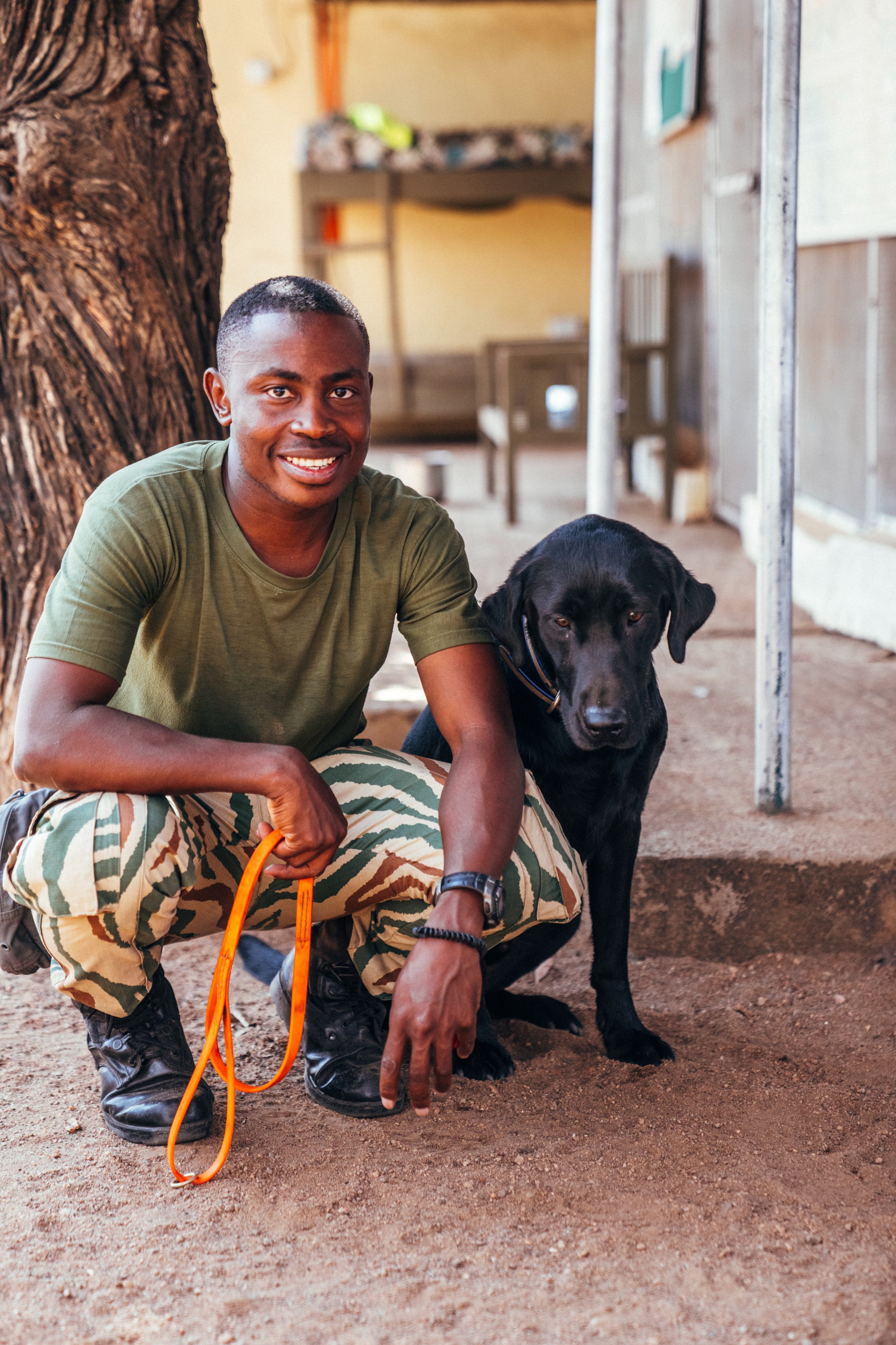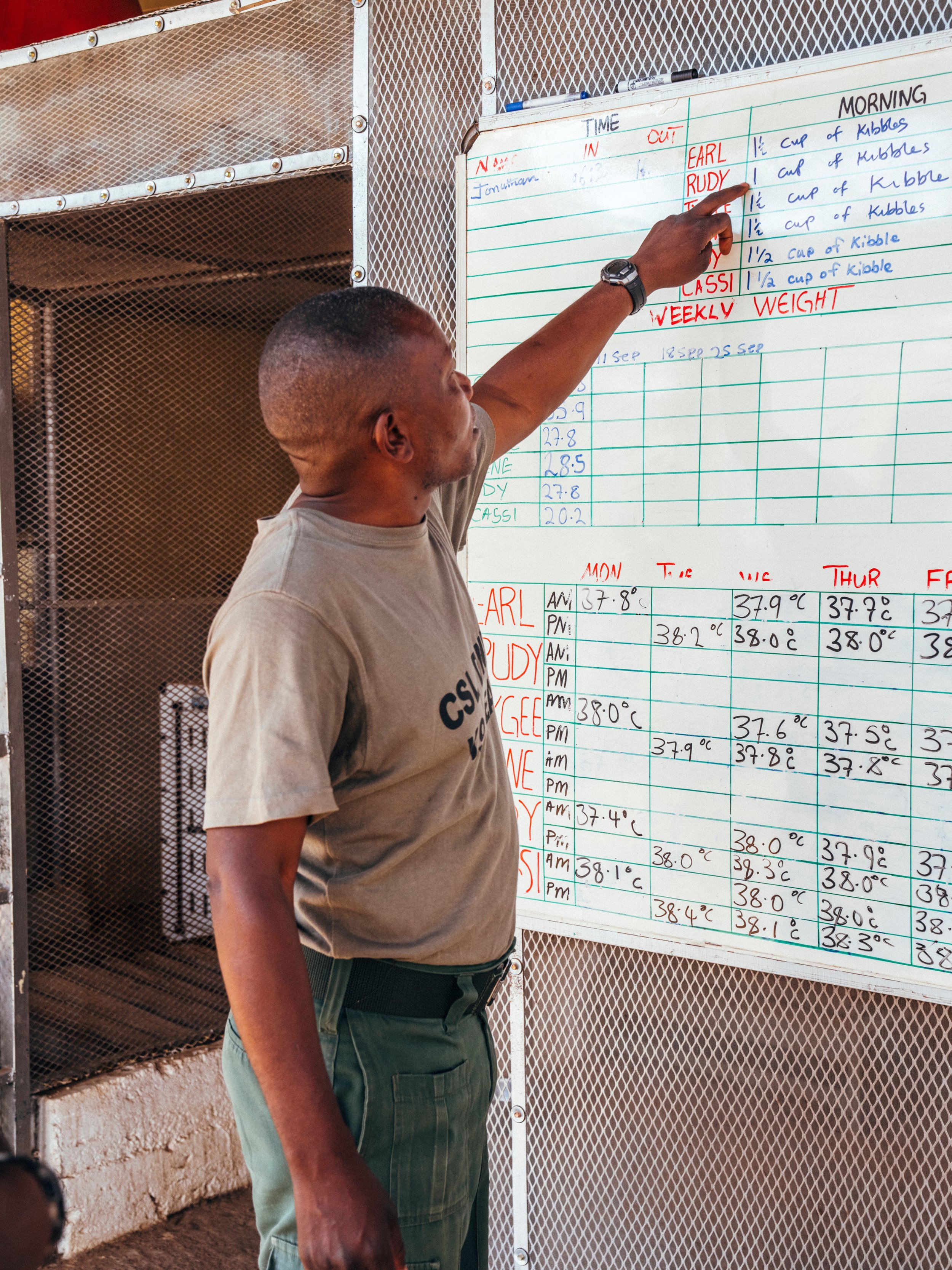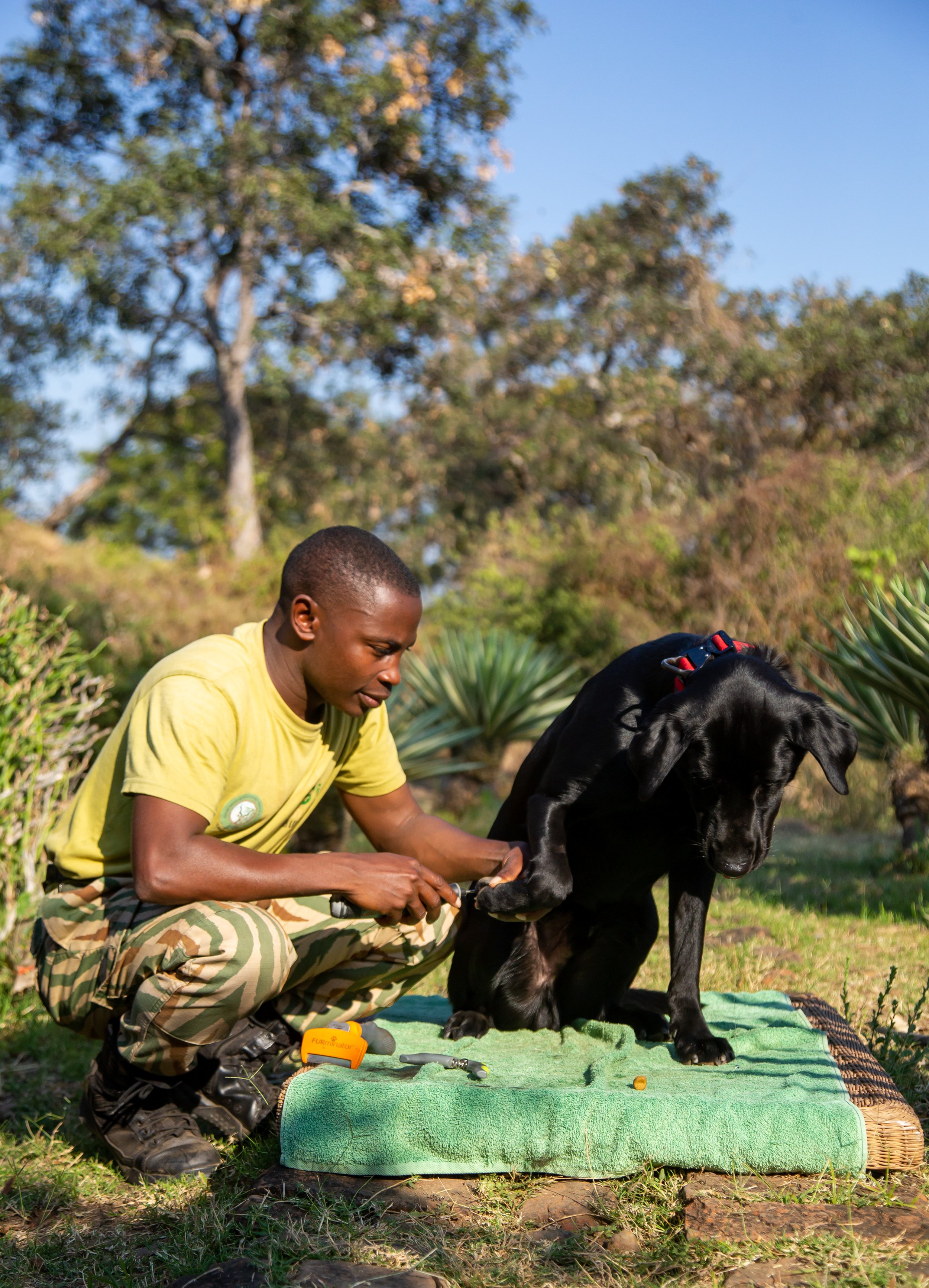What is the South Luangwa K9 Unit?
In 2014, CSL established Zambia’s first conservation K9 Unit in partnership with Zambia’s Department of National Parks and Wildlife (DNPW). This specialised team, which consists of four dogs and nine handlers, is dedicated to detecting illegal wildlife products and tracking wildlife crime suspects.
How effective is the South Luangwa K9 Unit?
In recent years, the South Luangwa K9 Unit has proven to be one of the most efficient and cost-effective assets in the fight against wildlife crime. In 2025, the K9 Unit was responsible for 21% of suspects arrested, 38% of firearms confiscated and 13% of bushmeat seized, yet accounted for just 5% of CSL’s expenditure.
How do the dogs contribute to the fight against wildlife crime?
With their incredible sense of smell, the K9 Unit dogs undergo rigorous training to identify firearms, bushmeat, ivory, animal skins, live animals, pangolin scales, ammunition and illegally trafficked timber such as mukula. Through vehicle searches, property searches and targeted operations in conjunction with aerial and ground patrol units, the K9 Unit makes major seizures and arrests each year. Not only do dogs increase efficiency and detect hard-to-find wildlife contraband, but their presence also provides an effective deterrent to traffickers and helps raise awareness in the community about the illegal wildlife trade.
Who are the dogs?
CSL’s dogs are typically rescued from shelters or surrendered by owners unable to cope with their high energy levels, a trait which can make a highly effective working dog. Meet our dogs below.
Gene
Date of birth: 1 April 2021
Gene, a chocolate Labrador, became a member of the K9 team in May 2022. Gene was initially intended to serve as an assistance dog. However, at the age of seven months, it became apparent that he possessed too much drive and required a more active role.
Ody
Date of birth: 14 January 2022
Ody is a black Labrador and was donated to the Working Dogs for Conservation programmme in the USA by Folklore Canine in Alabama when he was two months old. Ody joined the K9 team with Cassi in June 2023. He loves a good snuggle and loves to play with his toys.
Cassi
Date of birth: 12 March 2022
Cassi is a black Labrador and was raised from a puppy by a game warden in Texas. She was donated to the Working Dogs for Conservation programme in April 2023 and joined the K9 team in Zambia together with Ody in June 2023. She loves to run and play fetch.
Sherman
Date of birth: 21 May 2022
Sherman is a brown and black Belgian Malinois who was rescued from a shelter in Utah by a conservation expert. After eighteen months of confinement, he underwent intensive training in Montana, where he learnt to detect scents such as gunpowder and bear scat. He joined the anti-poaching mission in Zambia in September 2025 and now works to protect wildlife in the South Luangwa ecosystem.
Who are the handlers?
The team consists of nine dedicated K9 handlers, shown from left to right below - Godfrey Mwanza (Head of the K9 Unit), Sydney Njobvu (Deputy Head of the K9 Unit), Alick Banda, Given Phiri, Janet Sakala, Ackim Botha, Mike Njobvu, Collins Lifumbo and Christopher Mwamba. Mike, Collins and Christopher are DNPW salaried K9 handlers. Jonathan Zulu is the kennel keeper.
Why is the bond between dog and handler important?
TThe relationship between the K9 Unit dogs and handlers is one of the most important factors in their success. Trust, respect and affection are paramount. During downtime, handlers play ball games with the dogs and often share sleeping quarters in the dogs’ kennels.
How is the dogs’ health and wellbeing maintained?
The dogs are cared for by CSL’s Veterinarian, Dr Mwamba Sichande. In an area where dogs are at serious risk of trypanosomiasis (a deadly disease spread by tsetse flies), the dogs undergo twice-daily temperature checks and are continually monitored for other symptoms. The dogs are provided with nutritious Royal Canin food and the kennels are maintained by Jonathan Zulu, kennel keeper. The dogs enjoy cooling off in their very own swimming pool.
How can I support the South Luangwa K9 Unit?
You can give your support to the K9 Unit by sponsoring a K9 dog, whether for yourself or as a gift. With three K9 sponsorship tiers - Partner, Protector and Patron - your donation will enable these remarkable K9 dogs and their handlers to intercept trafficked wildlife products before they reach the black market, while also supporting the dogs’ training, veterinary care, and overall wellbeing.
